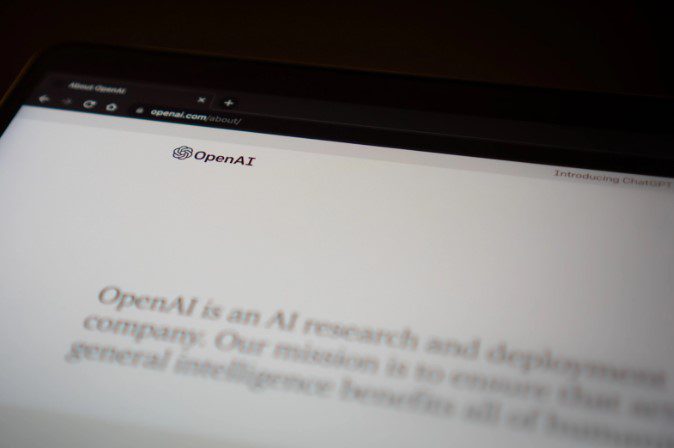Developing high-value, engaging content used to be enough. Now, businesses are searching for other strategies to gain their share of web traffic and conversions. Those who found success were able to do so by implementing a new strategy: AI with SEO.
AI SEO tools leverage artificial intelligence and machine learning to analyze data, predict trends, and provide actionable insights, making SEO-related tasks more efficient and effective.
Make the most out of these tools by working with a trusted public relations or digital marketing agency to help you integrate these tools into your business’ marketing operations. In the meantime, learn the basics of implementing them today:
Benefits of Using AI SEO Tools for Content Optimization
- Enhanced Keyword Research – Offers capabilities in identifying high-value keywords and phrases that traditional methods might miss, leading to more targeted content strategies.
- Improved Content Relevance – Analyzes vast amounts of data and suggests topics and formats that are likely to resonate with your audience, improving content relevance and engagement.
- Increased Efficiency in SEO Tasks – Automates SEO tasks such as keyword tagging and meta description optimization, freeing up time for more strategic activities.
- Predictive Analysis for SEO Strategy – Forecasts future trends and search behaviors, allowing marketers to adjust their SEO strategies proactively.
- Personalization in SEO – Personalizes content for different segments of your audience, enhancing user experience and engagement.
Top 7 AI SEO Tools to Optimize Your Website’s Content
Here’s a curated selection of tools to consider:
- Clearscope – Provides you with a complete understanding of keyword opportunities and content optimization insights. The key lies in incorporating it early into your process to assist with structuring for optimal SEO performance.
- MarketMuse – Supplements you with actionable insights like content gaps and topics that offer high quality potential for organic traffic – effectively refining your content quality and boosting SEO performance.
- Surfer SEO – Focuses on on-page optimization, aiding you in analyzing over 500 ranking factors to provide a detailed roadmap for crafting and optimizing content that meets the highest SEO standards for peak search engine visibility.
- SEMrush Writing Assistant – Streamlines your content creation process with real-time SEO feedback on performance, readability, and tone of voice – ensuring content’s not only optimized but engaging for your target audience.
- Frase – Generates detailed content outlines based on top-ranking search results, guaranteeing your content directly addresses what users are actively searching for. Thus improving your competitive edge and ranking potential.
- Copy.ai – Offers engaging and SEO-friendly content ideas, introductions, and draft articles to overcome writer’s block, allowing you to focus on refining and adding your unique voice.
- Outranking – Ensures research is informative, content creation is well-structured, and optimized to maximize SEO performance.
How to Choose the Right AI SEO Tool for Your Website
Follow these steps to identify the perfect content and strategy fit:
- Assess Your SEO Needs – Before diving in, evaluate your current SEO performance and identify areas that require improvement. This will help you determine which tool is best suited to address it.
- Compare Features and Pricing – Look for tools that deliver specific features you need at a price point that fits your budget. Additionally, you can consider free trials to test out which one would best complements your workflow.
- Consider User Reviews and Testimonials – Read user reviews to scope out their effectiveness, ease of use, and accessibility to customer support (in case of system issues).
- Integrate with Existing Tools and Platforms – Ensure the tool can seamlessly integrate itself into your existing content management system (CMS). This allows for a smooth workflow and avoids data transfer hassle.
Implementing AI SEO Tools into Your Content Strategy
Here are some key practices to implement for a smooth operation:
- Set-up and Configuring Your Chosen AI SEO Tool – Take the time to meticulously follow the setup instructions. This will ensure your tool’s properly configured for your website and content needs.
- Train Your Team on Effective Use – Conduct workshops, provide video tutorials, or even faciliate hands-on training to ensure your SEO team can comfortably navigate the new tools.
- Monitor and Analyze Performance – Regularly review the performance generated by your AI SEO tools to identify what’s driving success and what requires optimization to achieve better results.
Future of AI in SEO
Although they may differ in disciplines, together, SEO and AI make quite the potent content strategy tools. This primarily lies in their joint capability to unearth new opportunities through streamlining, analyzing, and optimizing processes. But it won’t be long before it becomes even more adept at understanding and dissecting data with machine learning refining its capabilities. Hence, we can only expect it to become even more efficient with granular precision compared to what is as of the current.
Related: Beyond Human: How AI Influencers Will Shape Social Media
The path to SEO mastery starts by embracing emerging trends and technological innovations, like AI. Doing so equips you with the necessary tools to address pervasive concerns and possess key data insights to make informed decisions that will propel you towards the coveted top spot in search results. However, it’s important to note that even though AI empowers you with the tools, lasting success rests upon the relentless pursuit of optimization. This is due to the landscape’s perpetual shifts, which brings keywords to evolve and algorithms to update. Therefore, stay vigilant and constantly diagnose your strategies for vulnerable areas, so you could promptly shift gears, yet stay a dominant force in the digital space.
Harmony Adiao-Carrillo is the editorial lead of NGP-IMC.


